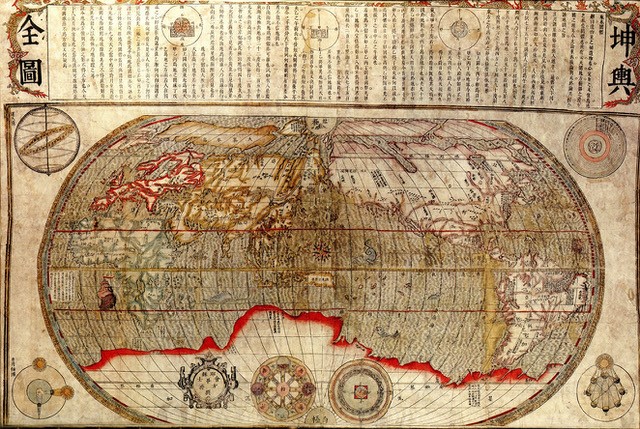On December 20th, 2022 ISI Florence hosted a roundtable discussion on the cultural and political role that the Jesuits played in China from the late 16th to the 18th century. Sponsored by ISI Florence, the Ufficio Centro Storico Patrimonio Mondiale del Comune di Firenze, the Società di Studi Giuseppe Castiglione SJ-Lang Shining, and Gonzaga University in Florence, this event at Palazzo Rucellai (our institute’s headquarters) centered around a lecture by Prof. Francesco Vossilla.

In his talk Prof. Vossilla focused on the important and yet still not sufficiently studied figure of the Jesuit missionary Francesco Sambiasi. Born in the southern Italian city of Cosenza in 1582, Sambiasi served as ambassador to the last Ming emperors from 1644 to 1649, when he died in Canton. Prof. Vossilla has recently published an article on him, entitled “Andavo d’accordo con lui e gli ho chiesto della Filosofia del Cielo”. Alcune “missioni pericolose” di Francesco Sambiasi in Cina. His essay can be read in the latest issue of the Rivista di Letteratura Storiografica Italiana (VI, 2022, Fabrizio Serra Editore, pp. 93-108), a journal edited by ISI Florence director Stefano Baldassarri. As Prof. Vossila pointed out in his lecture (and as documented in his article) Sambiasi moved to China in 1610, soon earning a reputation as an excellent and versatile scholar, particularly well-versed in maths and astronomy.

His fame and expertise made it possible for him to befriend such distinguished local figures as Paolo Xu Guangqi, Ignatio Sun (both Catholics), and the dissident intellectual (best known as a poet and philosopher) Fang Yizhi. As for his relationships with the last Ming emperors, Sambiasi became such close friends with Longwu that the latter wrote a touching, sincere poem in praise of this Jesuit missionary, calling him “my western brother.”
In addition to Prof. Vossilla, Alessandro Andreini, Stefano Baldassarri, and Carlo Francini participated in this roundtable discussion at Palazzo Rucellai, with a good number of people in attendance.
